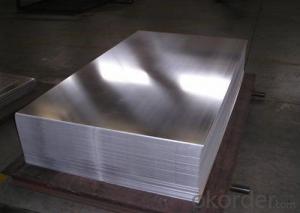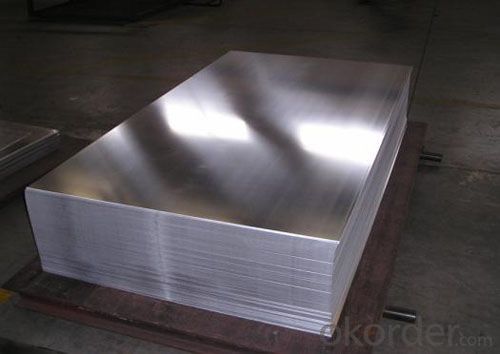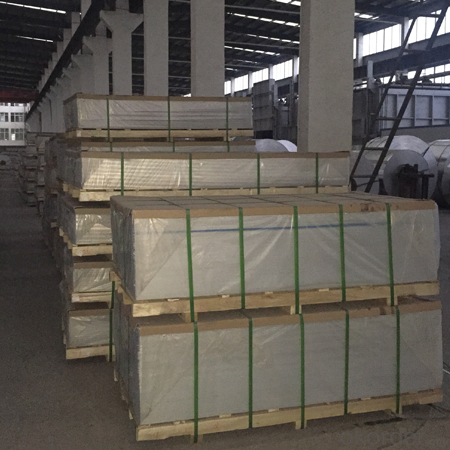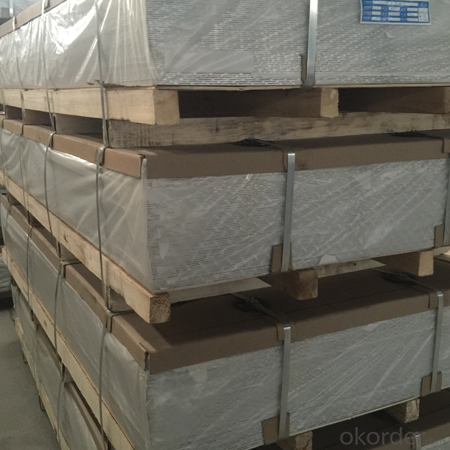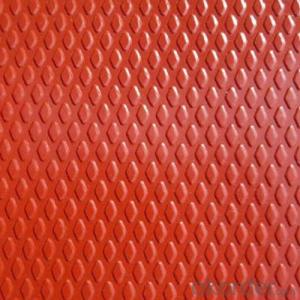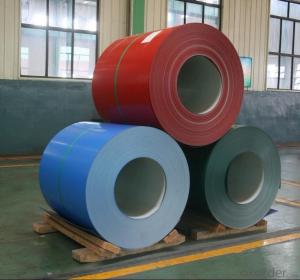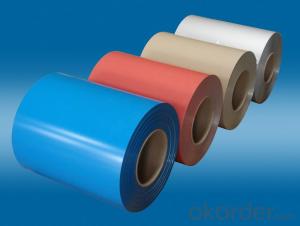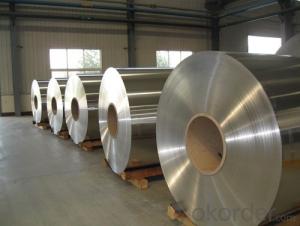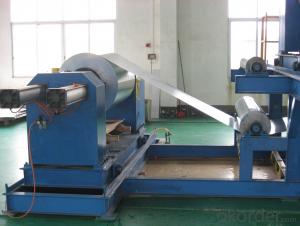5052 Aluminum Coil for Color Coated Aluminum Sheet in Automobile Parts
- Loading Port:
- Shanghai
- Payment Terms:
- TT OR LC
- Min Order Qty:
- 2 m.t.
- Supply Capability:
- 100000 m.t./month
OKorder Service Pledge
OKorder Financial Service
You Might Also Like
Specification
Color Coated Aluminium Sheet For Automobile Parts
Specifications
Alloy | 1050, 1060,1100, 3003 3004 3105 3A21 5005 5052 etc |
Temper | O/H12/H14/H1/H18/H32/H34/H36/H38//H111/H112/H116/H321/T6/T651/T3/T351 etc |
Thickness | 0.1mm to 6mm |
Width | 20mm to 3300mm |
Coil weight | 100kgs to 6 tons depends on actual requirement |
Core material | Aluminum or paper |
Coil inner diameter | 75mm, 150mm, 200mm, 300mm, 405mm, 505mm or as required |
Appplication | construction, roofing, decoration, lamping etc |
Package | eye to wall or eye to the wall for aluminum coil with wood pallet (wooded case also available) |
Characteristics
1) Excellent weather-proof durability
2) Anti-ultraviolet
3) High erosion resistance
4) Stable color and gloss
5) Good mechanical processing performance
6) Abrasion resistance
7) Anti-impact
8) High flexibility
Application
1) Construction material further processing
2) Solar cell frame, solar battery frame
3) Glass curtain wall frame
4) Interior decoration
5) Elevator decoration
6) Signs, nameplate, bags making.
7) Automobile parts material
8) Office and Household appliances: HVAC equipments
9) The consumer electronics: mobile phones, digital cameras, MP3 .etc.
Coating varieties
Polyester Coatings (PE)
PE (polyester) coatings exhibit an excellent combination of hardness, flexibility, flow, appearance, and superior resistance to dirt retention in indoor and outdoor applications. These coatings are highly resistant to abrasion, metal marking, staining, and marring, and require minimal maintenance. Glazetech uses polyester paints which provide excellent colour and gloss retention properties.
Polyvinylidene Fluoride Coatings (PVDF)
PVDF (polyvinylidene fluoride) is a chemical resistant thick film barrier coating commonly used in architectural applications where both excellent appearance and substrate protection must be maintained over a long period of time. This coating is unaffected by most chemicals and solvents and has excellent wear and abrasion resistance. PVDF also has a high dielectric strength, excellent resistance to weathering and the ability to self extinguish.
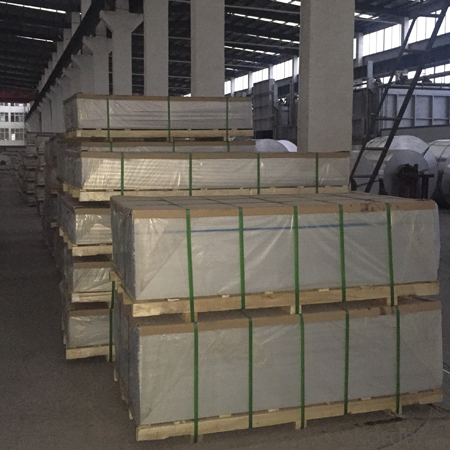
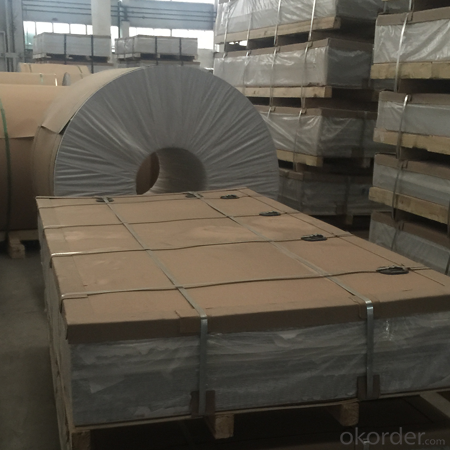
- Q: I want to separate the copper and aluminum so I will get more at the scrap yard for my radiators any one know of an easy way to do this? Thanks
- i've got in no way heard of the dry ice trick it may be exciting to work out if it certainly worked. i'm sorry to assert except you may isolate the water out of that pipe you will ought to empty the zone.
- Q: Can aluminum coils be used in the production of aluminum composite ceilings?
- Aluminum composite ceilings can indeed incorporate aluminum coils. The utilization of aluminum coils as the foundational material for manufacturing aluminum composite panels is quite common. These panels, in turn, serve as the foundation for constructing ceilings. The coils themselves typically consist of high-quality aluminum alloy and have undergone numerous processes to guarantee their durability, strength, and visual appeal. For added protection, the aluminum coils are coated with a layer of either PVDF or polyester. This coating serves to enhance their resistance to weathering, UV rays, and corrosion. Additionally, this protective layer allows for a wide array of color options, thus providing ample flexibility in design choices for aluminum composite ceilings. In summary, aluminum coils play a vital role in the production of aluminum composite ceilings. They offer a lightweight, fire-resistant, and long-lasting solution for a variety of architectural and interior design applications.
- Q: Is it possible to utilize aluminum coils in the construction industry as building materials?
- <p>Yes, aluminum coils can be used for building materials. They are valued for their lightweight, corrosion resistance, and strength. Aluminum coils are commonly used in roofing, siding, window frames, and facades due to their durability and low maintenance requirements. Additionally, they can be easily shaped and recycled, making them an environmentally friendly option in construction.</p>
- Q: How are aluminum coils used in the automotive industry?
- Aluminum coils are widely used in the automotive industry for various applications, including the manufacturing of car bodies and parts. They are used in the production of lightweight vehicles, as aluminum is lighter than steel, which helps improve fuel efficiency and reduce emissions. Aluminum coils are also used in radiators, air conditioning systems, heat exchangers, and other cooling components due to their excellent thermal conductivity. Additionally, aluminum coils are utilized for electrical wiring and connectors in cars, as they provide good electrical conductivity. Overall, aluminum coils play a crucial role in enhancing the performance, efficiency, and sustainability of vehicles in the automotive industry.
- Q: My front door is scraping the aluminum frame door jam thing on the bottom. Also underneith the door itself it seems like there is a huge aluminum device covering the whole bottom of it and an aluminum weather stipper built into that. Is my only option to have the door pulled off. Or could I maybe grind of file down the aluminum on the bottom?
- You okorder /
- Q: Can aluminum coils be recycled multiple times without losing their properties?
- Yes, aluminum coils can be recycled multiple times without losing their properties. Aluminum is a highly recyclable material, and the recycling process for aluminum coils involves melting the metal down to its liquid form and then reshaping it into new coils or other aluminum products. This process can be repeated over and over again without compromising the quality or properties of the aluminum. In fact, recycling aluminum requires only around 5% of the energy needed to produce new aluminum from raw materials, making it an environmentally friendly choice. Additionally, the properties of aluminum, such as its strength, durability, and resistance to corrosion, remain intact during the recycling process, ensuring that the recycled aluminum coils can be used for various applications just like the original ones. Therefore, recycling aluminum coils not only conserves valuable resources but also helps reduce waste and promote sustainability.
- Q: Are aluminum coils suitable for low-maintenance roofing applications?
- Indeed, low-maintenance roofing applications can benefit from the suitability of aluminum coils. Renowned for its durability, longevity, and corrosion resistance, aluminum proves to be an ideal roofing material. Despite its lightweight nature, aluminum coils possess remarkable strength that ensures superior structural integrity, enabling them to endure diverse weather conditions. Moreover, aluminum's low-maintenance characteristics make it a standout choice. It does not rust and does not necessitate regular painting, allowing homeowners and building managers to save valuable time and money that would otherwise be spent on maintenance tasks such as repainting or replacing rusted components. Ultimately, aluminum coils serve as an outstanding option for low-maintenance roofing applications.
- Q: Can aluminum coils be used in high-pressure applications?
- No, aluminum coils are not typically used in high-pressure applications due to their lower strength and less resistance to deformation compared to other materials such as steel.
- Q: This question is asking for methods or strategies to protect aluminum coils from rusting.
- <p>To prevent aluminum coil from rusting, it's important to understand that aluminum doesn't rust like iron does; it forms a protective oxide layer that prevents further corrosion. However, to maintain the integrity of the aluminum coil and prevent other forms of degradation, you can: 1. Store the coils in a dry environment to avoid moisture-induced corrosion. 2. Apply a protective coating or lacquer to the surface. 3. Use anti-corrosion packaging materials during transportation and storage. 4. Regularly inspect the coils for any signs of damage or corrosion and address them promptly. 5. Avoid contact with aggressive chemicals that can break down the protective oxide layer. Proper handling and storage are key to maintaining the quality of aluminum coils.</p>
- Q: This question asks for the distinctions between aluminum coil and steel coil, focusing on their properties and uses.
- <p>Aluminum coil and steel coil differ in several aspects. Aluminum coil is lightweight, corrosion-resistant, and has good thermal conductivity, making it ideal for applications requiring flexibility and resistance to weathering. It's commonly used in construction, packaging, and electrical applications. Steel coil, on the other hand, is stronger and more durable, suitable for heavy-duty applications. It's often used in automotive, construction, and manufacturing due to its high strength and ability to withstand heavy loads. Steel is also magnetic, which is a property not shared by aluminum. The choice between aluminum and steel coil depends on the specific requirements of the project, such as weight, strength, and environmental resistance.</p>
Send your message to us
5052 Aluminum Coil for Color Coated Aluminum Sheet in Automobile Parts
- Loading Port:
- Shanghai
- Payment Terms:
- TT OR LC
- Min Order Qty:
- 2 m.t.
- Supply Capability:
- 100000 m.t./month
OKorder Service Pledge
OKorder Financial Service
Similar products
Hot products
Hot Searches
Related keywords
